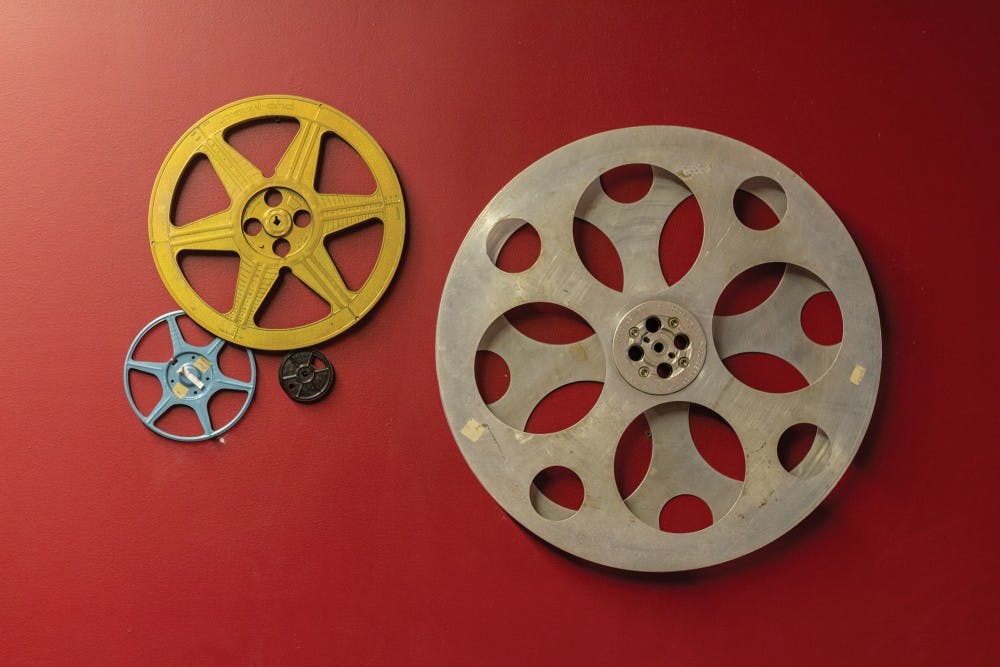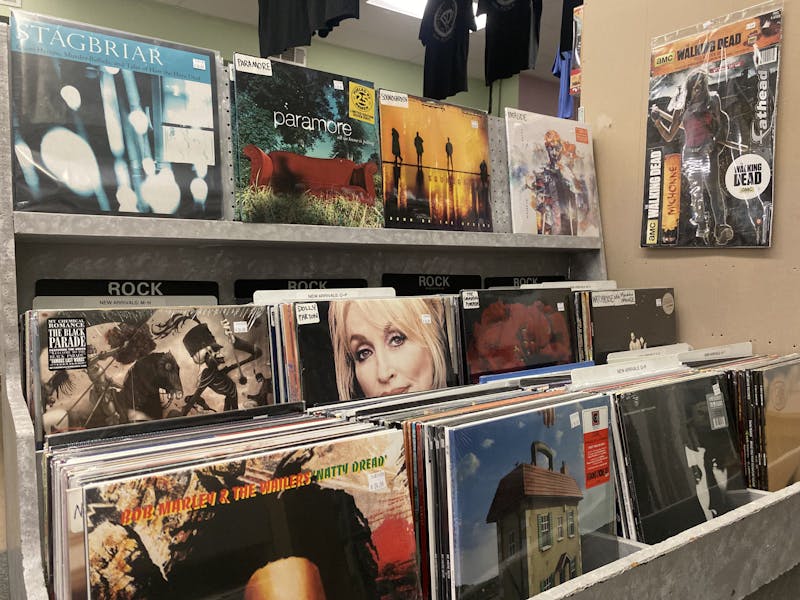Photo by Mark Maddaloni
In the past few years, audiences have seen their theaters and televisions being populated by more diverse filmmakers than ever before, from the blockbuster acclaim of Crazy Rich Asians to Spike Lee's Academy Awards nomination sweep for BlacKkKlansman. While Hollywood has certainly come a long way in such a short span of time, the industry still faces an accessibility issue. Many commercial theaters will forgo a diversely created film, and instead opt for the next installment of a multi-million dollar action franchise. If those already on top are the ones being further fanned, what is to be done about minorities’ widely unrecognized art?
Omme-Salma Rahemtullah, the Assistant Director of Programming at the Nickelodeon Theater here in Columbia, is committed to empowering minority filmmakers, one screening at a time. She chooses which films are to be screened, and thus has the frequent opportunity to showcase work by underrepresented people. At this point in cinema, when there is arguably more representation than ever before, who continues to be underrepresented? Rahemtullah states: “While many minorities are finally getting their spotlight, women of color — women in general — have been underrepresented in the film industry. I think women of color don't get the opportunities to make films that would be considered, for example, for the Oscars. In any industry, if you have all of the gatekeepers being white men, that will always keep out women of color until it’s changed.” The generalized increase, however, is still notable and history-making. “It's only a cultural shift to the majority,” says Rahemtullah. “We've been doing this forever, but it’s just now getting out into the mainstream.”
All filmmakers have their own themes in all of their movies. Martin Scorsese frequently leads tales about Italian-Americans in urban America, Christopher Nolan directs stories of professionals with whip-smart bravery, and Wes Anderson directs characters who are twee and precocious. The issue may not be that white male filmmakers aren't creating diverse films, but that underrepresented filmmakers are not as widely recognized for their storytelling.
“We all can only speak from the experiences that we’ve had,” says Rahemtullah, “but this is a creative field as well, so there’s lots of space for creativity - for creating stories - but they definitely are a reflection of our experiences and of the access we have. Who’s telling the story is important because that perspective varies, it changes from person to person, and just being able to see a diversity of perspectives and approaches is so important.”
In a literary context, F. Scott Fitzgerald never could have written The Color Purple, because that’s not his story to tell. Any attempt could come off as, quite literally, skin-deep. Perspective defines story, whether from the author or the character. As Rahemtullah says, “It’s not only in the stories, it’s in the makers: while white male directors tend to hire white males for their teams, women of color directors tend to hire other people who are also in marginalized communities to be on the project, so that it opens up the whole field to the people who’ve been shut out of it.”
On this note, many minority-made films tend to be brushed under the rug in lieu of more money-making blockbusters, so many are underwatched and underrated. Rahemtullah praises the little-known Give Me Liberty: “I saw this beautiful, incredible film and it just struck me. It’s made by a white Russian man, but the way that race was approached was just beautifully refreshing and really on point, and it didn’t get distributed like it should have.” On the other side of the coin, “Get Out," she says, “opened a genre to mainstream that has otherwise been underrepresented. The reality of African American lives, the horrors of racism and slavery, at its core, that tradition is as old as the slave trade, but for it to be in a mainstream film is really game-changing, in a sense.”
Rahemtullah (a South Asian woman from Africa) rejects the idea of numbing out categorization; race isn’t something to be transcended from one day, but something important to hold on to. “I never want to be seen as ‘just a woman'," she asserts.“We show the Toni Morrison documentary here, and she said she never wanted to be a woman writer, she always wanted to be a Black woman writer. So kind of diluting and mainstreaming our history isn’t necessarily beneficial. We all have different experiences, and those should be on the screen as well. We’re part of the American fabric.”
…
Taking one look at the Nick's website or social media is enough to realize that this is no Regal Entertainment Theater; this is a haven of community, art, and visibility. There are usually two carefully chosen films being screened per day, as well as special events and series highlighting especially diverse titles. For example, the Foreign Focus series highlights a foreign film once a month, and the Out Here series is dedicated to LGBTQ+ filmmaking. Rahemtullah has the vital job of selecting which films to screen, and she states that they plan to “work on implementing an ‘equity chart,' where [The Nickelodeon] can track and be really deliberate about choices. To track that as a reflection and go in a direction where we can make commitments like that so we can be a conduit to equity within the film industry, that’s the goal.” Mid-October, there will be screening of This Changes Everything, a look into gender inequality in Hollywood, which will include accounts from women like Zoe Saldana, Natalie Portman, Meryl Streep, and Rashida Jones.
The Nickelodeon’s partner organization, Indie Grits, is known for their community events, most notably for staging hands-on workshops for filmmakers of all ages and backgrounds. Through these workshops, individuals are able to take the reins of their storytelling. “I've never touched a film camera," Rahemtullah says, “and having access to that equipment and that mentorship is just so empowering. It makes you think, ‘If anyone else can do it, why can’t I do it?’” Examples of workshops include Intro to Screenwriting, Costume Design on a Budget, Intro to Premiere Pro Software, and Group Media Workshops for Youth. In her words, it’s “very accessible because [their] approach is really grassroots; you don’t have to be intimidated.” In the Columbia community, she finds that “there’s a curiosity here that you don’t often see outside of the South, which is really refreshing. I don’t want to categorize, but I do see that exciting kind of keen interest here.”
All this being said, how can Columbia locals support minority filmmakers? Well, Rahemtullah assures that it’s much simpler than you may think: “Come out and watch their movies! That’s the most important thing to do, show your support if you have the means and access to it.” You don’t have to own a multi-million dollar production company to support minority film; anyone with a few dollars and a free couple of hours has the ability to spread and recognize the work of these filmmakers, wherein every pair of eyes is a triumph. Succinctly put by Rahemtullah, the selecter of the screenings herself: “Come out and see films, experiment a little, and you’ll be pleasantly surprised.”
The Nickelodeon can be found at 1607 Main Street. For tickets and showtimes, check https://nickelodeon.org or call (803) 254-8234



